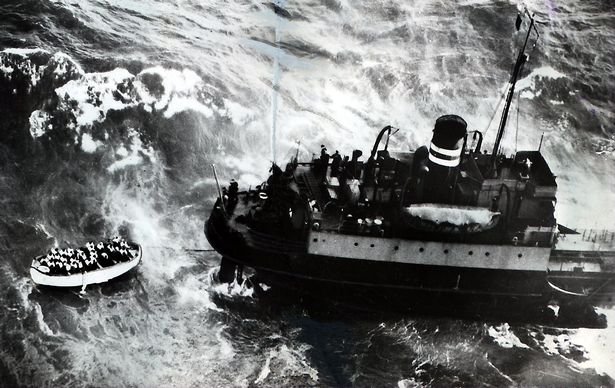It all brings to mind another January maritime disaster – the sinking of the HMY Iolaire at the entrance to Stornoway harbour on 1 January 1919. The Iolaire (Gaelic for Eagle) was bringing sailors who had fought in WWI home to the Isle of Lewis when she hit rocks and sank. At least 201 of the 283 on board perished – of whom 181 were islanders. Almost an entire generation of young men was lost.
The people of Lewis erected a memorial to the disaster in 1958. On it are the words of Psalm 77:19 in Gaelic – ‘Your way was through the sea, your path through the great waters; yet your footprints were unseen’. It was an acknowledgement that even in such a disaster, God was still sovereign. That even though his ways are often unseen to us, that doesn’t mean he is absent.
And surely we can say the same about the 31st of January 1953. The very fact that seventy years later we still remember it shows how valuable we consider human life to be. If, as we’re often told, human life is no different from animal life, why bother remembering? If life is really about the survival of the fittest, why do we believe that those who risked – or even gave – their lives to save others, did the morally right thing?
What is the greatest expression of love? It’s a question that evolution cannot answer.
But the Bible’s answer is: ‘Greater love has no one than this, that someone lay down his life for his friends’.
Jesus Christ – the one who uttered those words – demonstrated exactly what that sort of love looked like by going to the cross. As Jesus hung on the cross, it looked like God was absent. Jesus himself cried out ‘My God, my God, why have you forsaken me?’
And yet while it looked for all the world like God was absent – as it did 70 years ago too – he was anything but. He was making a way for us to be reconciled to him.
In a sense we could say that humanity at its best was seen on 31st January 1953. In the bravery displayed and the selfless sacrifice shown. Humanity at its best reflects the image of our maker. And yet it still falls short of his glory.
But on the cross, the Son of God in his perfect, sinless humanity, gave his life that we might believe in him and live with him forever.
Published in the Stranraer & Wigtownshire Free Press, 26 January 2023














